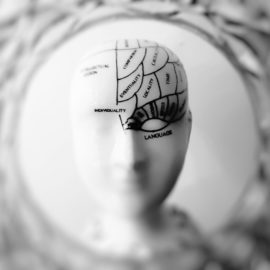

This article is an excerpt from the Shortform book guide to "Enlightenment Now" by Steven Pinker. Shortform has the world's best summaries and analyses of books you should be reading.
Like this article? Sign up for a free trial here.
What is human progress? Can it be defined objectively? What’s “better”?
Psychologist Steven Pinker believes that humanity is on the path of progress. But, exactly what that means can be hard to pin down. He tackles the definition in his book Enlightenment Now.
Keep reading to learn what human progress is, according to Pinker.
Human Progress
Pinker defines human progress as using reason, science, and humanism to better conditions for all of humanity. He argues that progress is made by making changes in social institutions like laws and educational systems, not by trying to change anything in human nature. (Shortform note: Some people believe the opposite—that progress is made by changing people. Conservative thinkers have argued that human flourishing must begin within the individual, often through spiritual development, and they oppose attempts to regulate progress by law.)
While a definition of “progress” as using reason, science, and humanism to improve conditions for humanity seems straightforward, the word “improve” implies a value judgment and is therefore subjective. Who decides what’s better? Pinker believes we can agree on some universals in this area—there are some things we can all agree are better than other things. For example, he says: Health is better than sickness, peace is better than violence, and freedom is better than enslavement.
While some of these dichotomies may seem obvious, there are some other measures of “improvement” that Pinker strives to defend, as they are not as obviously universally “better.” For example, the claim that wealth is inherently better than poverty can be challenged by pointing out that a person who is poor but happy is better off than a person who is wealthy but miserable. Or, one could argue that wealthier, more technologically advanced human societies are not worth the sacrifice of an environmental crisis.
(Shortform note: Scholars have argued that the focus on continuous economic growth is at the root of the environmental crisis, and they call for implementing “no growth” or even “deliberately de-growth” economic models for the future. They admit, however, that the continuous growth ideology is deeply embedded in the thought patterns of modern people, so the idea of deliberate de-growth is highly unsettling for many. Therefore, they say changing the way people think is crucial in the fight against climate change.)
Pinker tackles some of these objections, arguing that, to solve the dilemmas we face in the modern world, we simply need to push forward with reason, science, and humanism. He argues that people today who don’t think life is all-around better than it was for humans in the past suffer from two problems:
- They have distorted perceptions of the world, due to biases in what they see and how they think.
- They’re ungrateful for what they have because they’re so disconnected from the unpleasant reality of what life in past societies was like.

———End of Preview———
Like what you just read? Read the rest of the world's best book summary and analysis of Steven Pinker's "Enlightenment Now" at Shortform.
Here's what you'll find in our full Enlightenment Now summary:
- How the world is actually getting better, not worse, over time
- Why people think the world is worse off than it is
- What Enlightenment values are and where they come from






